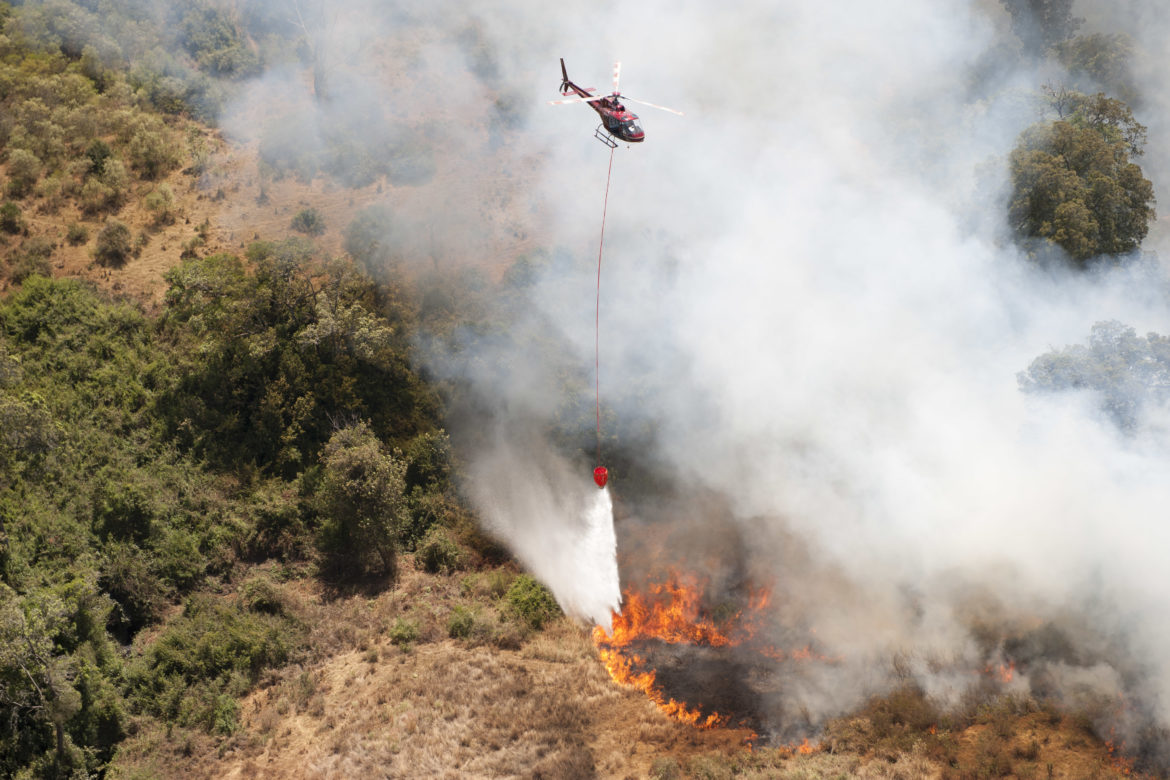When disaster strikes, a growing number of air-borne emergency responders around the globe are fighting fires with helicopter fire buckets designed and built in Napier.
Fourteen years after starting a Hawke’s Bay engineering company with a $20,000 loan, Richard Lane now runs a specialist helicopter equipment business with a growing list of international customers.
“In 2004 I started off with myself and my toolbox, and I borrowed $20,000 off my auntie,” says Richard, a fitter and turner by trade.
“At that time I had three dependants, so starting a business probably wasn’t the smartest idea. I don’t know why I did it, other than that I must have had the confidence that it would work out.”
The business, Industrial Manufacturing Services, picked up work from local industries, with a focus on food processing work. Richard’s confidence proved to be well placed. In a short period of time he was able to pay back the original loan and start employing staff.
“Through hard work and long hours, including working weekends and doing jobs others didn’t want to do, we got ourselves established in the engineering business in Hawke’s Bay,” he says.
The company also gave Richard the opportunity to “start building products I’d always wanted to build”, with a focus on the helicopter industry. Progress was assisted by having a friend, Paul Greene, who owned a helicopter company and was willing to help with product testing.
“We started building products for people we knew, and people they knew. Our reputation grew and we attracted aviation clients around the country. The products were often designed by me at night and built in whatever spare time we had.”
The company exported its first Cloudburst firefighting bucket in 2007 and the following year Richard established a second business, IMS New Zealand, to focus on the international sales and marketing of the aviation products produced by Industrial Manufacturing Services.
The two companies now have a combined staff of 16 working across three workshops in Onekawa, with construction of a fourth workshop on a neighbouring site about to get underway.
On top of its Napier base, IMS also has an office in Auckland and is exporting around the world with representatives in China, Canada, the US, South America, Europe and South Africa.
Aside from its Cloudburst fire buckets, the Civil Aviation Authority-approved company’s other major product is the Ground-Effect spreading bucket, a bucket used for fertiliser spreading and grass seeding. IMS also manufactures aerial concrete skips under the Ground-Effect brand and sells a full range of related aviation products to support its buckets, including long-lines, swivels, remote hooks and specialist loading trailers.
Richard says the international reach the company has achieved is demonstrated by the fact that some of the helicopters it builds equipment for internationally have never been flown in New Zealand because they’re too big for local requirements.
IMS is currently selling about 40 fire buckets and 60 fertiliser buckets a year, along with associated equipment. Its Cloudburst customers include a number of militaries around the world.
The company’s latest growth strategy has involved sending a large shipment of its equipment to the US on consignment, enabling it to have a stronger presence with product on the ground in its largest market.
“It’s the first time we’ve invested a significant amount of money holding stock in America. For a small company it’s a huge financial commitment,” says Richard.
It’s a move intended to boost sales as IMS continues to grow its share of global markets.
“We’re doing pretty well in the marketplace. We believe that the Ground-Effect spreading bucket would be the most popular spreader in the world based on sales and technology, with the Cloudburst bucket definitely in the number-two position on sales only,” Richard says.
“That puts us behind a competitor in the fire bucket space who’s currently selling ten times what we sell, but they’ve been in the market since the 1980s and we’re cracking into that market now and starting to make some serious inroads. That competitor’s product is built in North America and we’re now selling a lot into North America so we’re offering an alternative – we’re excited.”
About 18 months ago IMS received a buyout offer from that same competitor, but after serious consideration, decided not to accept it – a decision Richard remains happy with given the company’s growth since then.
“We’re already looking back now and saying we’re possibly getting close to making their offer now every year,” he says.



